|
10/31/2019 Poetry by Susanna Connelly Holstein Matt Gragg Photography CC
Oldest Son You were the quiet one, my oldest son. You watched, listened while others talked. They did things you would not do unless you were with Jon, your closest brother, the one you talked with for hours into the night, the two of you in your upper bunks with a board between them as a bridge. Even in the middle of the night, you talked to each other in your sleep. You and Jon would ride his brown pony bareback along the dirt road across the ridge, your two heads close as you held on to each other, always talking; I could hear your voices from our porch, a quarter mile away. Sometimes you would walk the ridge, stop and talk in the middle of the road. I still wonder what was so important it required stopping to wave your hands and laugh and laugh and laugh. Now Jon is dead, and you hike lonely mountain trails, camp by silent rivers, build your fires in forest solitude. Is Jon in your heart, his voice in your head as you look up at moon and stars? Do you talk to him still? Does he see the eagle soar through your eyes? Is he there beside you in the dark of night, My quiet oldest son? Dirt to Dirt I plan as I plant. Blue vervain next to orange-gold Stella lilies, Pink phlox against fluffy baby’s breath. The garden weeds succumb to my insistent fingers; my shovel turns soil laced with earthworm burrows, threaded with gossamer roots. I find treasure: a tiny metal car missing its wheels, a time capsule left by little boys some thirty years before I decreed this space a garden. Boys carved roads, built bridges, dug holes for their dozers and trucks. Now one lies in distant red clay soil, outlived by iris and spirea. What a thought, that an ordinary plant that bloomed when he was living, blooms again when he is gone. All I have are memories of a little boy browned by sun and wind, and little toy cars in unexpected places, left by one who played in a future garden tended by his mother’s aging hands. Susanna Connelly Holstein’s work has appeared in the poetry anthology Fed From the Blade (Woodland Press), Voices on Unity: Coming Together, Falling Apart and Diner Stories (Mountain State Press) and other short story anthologies and poetry journals. A traditional Appalachian storyteller and ballad singer and mother of five sons, Holstein blogs and writes from her home in rural Jackson County, West Virginia. 10/31/2019 Poetry by darlene anita scott Shannon O'Toole CC
DI-DI MAU (v.) to hurry away; conveys sense of urgency Robert “the Bitter Dose” Hurst Vietnam, 1965 I chant my numbers to mantra: no male in my family made 30. I know the jungle will suck mine from my lips. Drag & pass, Blood. Faith won’t fit in our rucksacks. Here everything is abbreviation: rain is piss; I call you Blood; Me, I’m Dose: Mon.’s quinine defense against mosquitos thick as rain; bitter but Sugar, you know you want it. Even legacy—babies & ancestors won’t admit I existed. 19 yrs cropped to discretion & the camera’s viewfinder. In letters crammed with MREs reported like occasions, Motown cursive in margins wishing impossible daughters who will erupt into blushes at the nightstand where I am still warm as its exposure in the only photo you managed to save. I DREAM YOU ARE STILL “The morning loiters, you stay here and you let me walk away as if you were still.” Tiffany Austin (1975-2018) In naked light: glass. Can't write. Don't read. I’m eating my vegetables, taking my meds. Running a l'il piece again. Skin's clear; con- tracts signed. The plants are green & full- ish. This is what Well can look like. In my dream you didn't go suddenly. Or at all. From that side of the plane, you tell me I'm mis- taken. I wake up though. This is also how Well shows itself. I suppose there are worse things than loss. Even hard ones. Unexplained. Unfinished. Take off the un- & still. Whatever power the lost had in your life when they were here is amplified once they’re ancestor. I see it girl. Still, glass. You’re un- here & won’t be here ever again. Well is the cost- ume of glass. I may have imagined it all. Glass seems trans- parent. It’s always a distortion. Fragile & dangerous. Reveals, breaks, cuts. Keeps us at arm’s length; in or out. I’ve always been good at keeping things in; adept at keeping people out. So how could you be or have been? Maybe glass. You are un-here and won’t be here again. This is what Well will look like. darlene anita scott is a poet and visual artist based in Richmond Virginia. Recent poetry appears or is forthcoming in Rock! Paper! Scissors!, Kestrel, Stonecoast Review, and Revisiting the Elegy in the Black Lives Matter Era (Routledge 2019), a volume of poetry and scholarship she co-edited with Drs. Emily Ruth Rutter, Sequoia Maner, and the late Dr. Tiffany Austin. scott's photography has recently been featured in Auburn Avenue, Barren Magazine, and Hot Metal Bridge. Ninian Reid CC The Farmhouse is Cluttered with Memories My grandmother lost hers there in the stacks of thick photographs and handwritten daybooks My mother misplaced hers among the old newspapers and mismatched plates At night, my grandmother would shuffle out of her new bedroom into the old house worried that the horses were out of her father's barn fifty miles and eighty-seven years away My mother in her childhood home tries to make sense of the new strangers who claim to be her children She listens for the return of the dead wonders where her husband is when an old man brings her tea 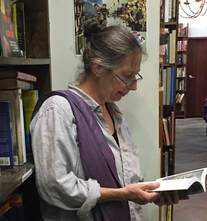 R. K. Wolford writes poetry and tiny stories in the San Francisco Bay area. 10/31/2019 Poetry by Lillian Sickler hnt6581 CC bat fishing with Rachel when I lived with my parents when I still slept underneath a roof— my favorite sister and I would sit on the shingles and fish for bats with long nets meant for minnows. the sky would hold its breath and turn dark indigo, but we’d stay out until that flimsy periwinkle line appeared on the event horizon and we’d talk about times that we wanted to forget. like the morning our father hit that squirrel with the secondhand Chevy and it didn’t die right away, just writhed in the road like it had been electrocuted. my sister would do the same thing when she laughed as when she cried: bend over and touch her knees, holding her breath like it was something about to fly away looking at the sun a rainbow of mums spilled across the doorway to September & the rich folks headed to Saratoga to cast their bets on thoroughbred racing. your boyfriend stood on his mohair sofa, your beloved Mississippi pooling around his ankles as his feet sank into the sun-bleached cushions i am on my way to heaven he said it only with his hands as he waited for your neighbors to line up spherical bales of hay in the ornery fields ponies in the starting gate— beautiful is fast. fast is beautiful. in Tennessee, 200 feet of quarry water held you up like a prize fighter, your heart cherried with crimson clay. maybe it is possible that the adults are lying about the dangers of looking directly at the sun. because you didn’t look— & you missed the pink lights of his fingernails as the starting pistol bucked in his sweat-shined hands & you are cursed with the fact that you became a part of the world —a part of that quarry—just as he was leaving it 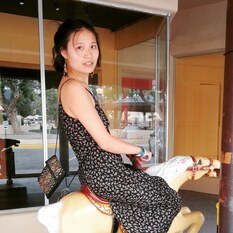 Lillian Sickler is a poet, writer, and birth doula living in Knoxville, Tennessee. Her work can be found in Cosmonauts Avenue, Ghost City Press, Vagabond City, Noble / Gas Quarterly, and upcoming issues of Hobart and Crab Fat Magazine. She has two cats named Laika and Junebug. 10/31/2019 Poetry by Chloè McMurray hnt6581 CC My Mother, Caryatid I will the mirror to shatter, your freckle at the bottom of my chin, a festered scab I pick at until it bleeds—your parasitic blood spills and I cannot leech you out, a dog piss stain that vinegar can’t scrub clean. The blood I bear in my veins blackens and boils, blisters and bruises me: your direct transfusion—I’d grill that umbilical cord if I could-- char it ‘til it turns to ash and sprinkle it in with yours deep in the ground. Your mother carried you down the cemetery, warping under 237 pounds of you smoked into a small square box-- she stumbled and fell, equilibrium unable to adjust, much less accommodate—I wonder where the Kentucky breeze blew your tumbled ashes. She thinks I am you now. She calls me Ruth Ann and wishes me Happy Birthday on April 30th—two months after mine. She’s forgotten falling down that hill and spilling your body now mixed with the graveyard tree roots, xylem and phloem a plugged highway. What sweet relief that must be, what painless ignorance. You are petrified to my brain, a Caryatid on my porch and every day I must refuse to buy ten gallons of gasoline, light a cigarette, let the nicotine course through our veins, and burn you down one last time. A Conversation with the Old Lady Child Do we have any birthdays this month? A). Yes, Granny. Mine was yesterday. We had a party and everything. B). No, no birthdays this month. C). Yes, mine, but I don’t want to do anything for it. She wants to bake a cake but can’t turn the oven on. She wants to remember the party but it’s gone-- dewdrops dried by the sunrise. If you choose option A, prepare for: Why wasn’t I invited? You were. I was here? Yes. You gave me $20 and apologized for not having a card. Why don’t I remember? A).Because God is cruel? B). Because your brain is degenerating and there’s nothing we can do to stop it but I hope you know that all of us would crack our skulls open with a dull hammer if we thought you could use the pieces of gray matter, if we thought we could give you our brain cells so yours would stop dying, if we thought it would make a damn difference? C). Because you’re old and then laugh Settle on C. You cannot change her now. Nurture what is there. What is left. Help the sunshine warm her bones, even if this means the dew will disappear. When this doesn’t work, she will ask: Well, is there something I’m supposed to do today? What if I don’t remember today tomorrow? Remember that video of the fish who realizes not water exists. Remember the time you got black out drunk and fucked four people in one night but did not know where you were when you woke up. Remember the time you kissed that girl you loved and realized you didn’t like kissing her anymore. Remember when you lost your keys for four days and from that point forward, only put them on your coffee table. Will you tell me if I miss something? Will you tell me if I need to do something? Yes, Granny. Yes and always yes. 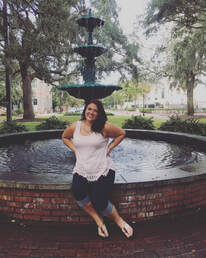 Chloè McMurray is a graduate from Union College with her BA in English and Sociology. She won the Rushton Writing Competition for Poetry in 2017, 2018, and 2019 at Union. Her poetry has been featured in the online magazine Across the Margin, Georgia State’s publication The Underground, national publication The Albion Review, and more. For nearly five years, she has led a creative writing and social justice group in her hometown of Middlesboro, Kentucky which caters to minority group youth, primarily those in the LGBTQ+ community. 10/31/2019 Poetry by Hallie Nowak hnt6581 CC Lying in the Snow on Rockhill Street It is winter. In my body, Christmas lights buzz, thawing through my liver. Your string light smile, your unblinking icy eye-- I bury all of it in the busted brick on the corner of our apartment and the two years between us. I think about the traffic light, its passionless pulsations of red, fire, wanting. Its please slow down whisper-scream lighting the also red brick of your body coated with fingers of frost. Filling my socks with a quiet indignation, I suspend the moment the white headlight reflracts against your pupil, Cars halt at the end of our street. I buried you because I loved you. Dusk scratches its cold fingers across the sky. I thumb through your dusty book filled with diagrams of moth species. My back is scarred pink with the little lines of your fingernails. A car screeches against the ice. This street is too slick to drive down. Tires gouge the quiet place where I buried _____. When spring enters your unfamiliar body, the lunar moth lays its bright eggs in the frozen indentation where two bodies once frozen together nestled. In my body, winter warms everything crimson. Before delicate rosy keloid scars grow over gashes, you held me hyperventilating on the beige carpet of our apartment. The blue veins in your wrist spoke to my pulse. My pulse quieted to irregular palpitations that matched your coronary defect you never treated. Yes, wounds can speak, as can impressions left in fabric and wet stains on pleated skirts. I thought our stains complimented each other tenderly. I want to tell you that I am not angry at your left earring, or your face that looks somehow less familiar in every picture. I am not resentful for the nights you coiled up alone on the couch in the living room. Instead, I remember your loving fingers rubbing the knots out of my tangled spine. I think about the way you held me the night after the night after the night I was raped by a friend. How do I come back from this? I am not sure I know. However, I am thanking you back into my birth for you being born as you. I am not sure I am ready, but eventually I want to be split open kindly; a bleeding receptacle for forgiveness.  Hallie Nowak is a poet and artist writing and residing in Fort Wayne, Indiana, where she is in pursuit of her undergraduate degree in English at Purdue University Fort Wayne. She is the author of Girlblooded, a poetry chapbook (Dandelion Review, 2018). Her work can also be read in Okay Donkey and Noble/Gas Qrtrly where her poem, “A Dissected Body Speaks,” was awarded runner-up for the 2018 Birdwhistle Prize. Twitter: @heyguysimhallie Instagram: @hallie_nowak hnt6581 CC The Stages of Grief When Dying Forever Denial – Have you ever mourned the loss of an absence? Illness is the alarm you didn’t know was set. And you wake up wondering where the time went. Some days, most really, you simply exist, you blend in, you perform. And you do it so well that you can forget what is actually going on. You do it so well that you manage to convince everyone else around you that there is nothing wrong, that you are just fine. There are days like this when you do it too well and someone says something meant well but received poorly. Because your tired is not the same as their tired. Your sick is not the same as their sick. Your living is not the same as their living. On days like that you don’t say much because the anger is too much. You’re never sure where the anger is really directed: to the people who keep mistaking your living as presence or to yourself for forgetting who you are. If you’re not careful your silence is just as loud as the raging scream beneath your polite how-do-you-dos. You fill the air with your sick. If anyone comes too close they’ll wonder if it’s about to rain. When you hold onto the banister and everyone looks back with confusion you smile wide and say your foot fell asleep. And no one seems to question how a foot can fall asleep so suddenly. Anger – Recently over lunch with a work friend I blurted out, “I don’t trust anyone!” I’ve always thought this was okay. I only trust myself though I know one day even my mind will become entirely unreliable and I will still trust that because it is chaos and disruption that I’ve always found reliable, in the first place. These are the things you lose and they’re not coming back. None of it is ever coming back. This is the point of no return and you didn’t know you’d been walking or searching. My first words after my diagnosis were: but I just got started. You see, that’s the loss and the prophecy. You lose everything and you begin again. When you shower and see the bruises on your hips you then remember your acts of defiance on the stairwell, refusing to grasp anything but the notion that you deserve to go down the stairs as whimsically as anyone else. Depth perception deficiency, my ass, you think. Indeed, your plum colored left hip nods back. Bargaining – Chronic illness might be a state of constant grief. It depends but, Multiple Sclerosis is a never-ending argument. The other night scrolling Facebook I came across a post in one of the MS groups I’m in. She posted about her journey to motherhood or, rather, the journey coming to a halt. The doctor told her, after the fourth and final ultrasound showed an empty womb, that sometimes the body will stop producing eggs as a protective measure. The body and protective measures create a language of comeuppance. For her, it was a reminder that she would not be a mother, perhaps could not be one, not the sort she’d been envisioning all her life. And a reminder that what she wants and what her body wants might be at odds. She tells herself, “open, welcome, support a life, please, I’ll do anything.” Her body responds in aggressive refusal, “I’m already here, the life I support is yours. Please let me. I’ll do anything.” How do you trust the body when the body is what betrays you? You learn to trust the betrayal. You know it’s coming. You might even know what it will look like, feel like. Or you don’t. This is okay – because it is not the body that is yours – but the betrayal that becomes you. You lose everything and nothing at all. Because you still have you – the body – but it is not the body you thought you had. See? Everything and nothing. Comeuppance and conjecture. Lots of buts and well, actually or sort of and maybes. By the end of the day I have moved from contrarian to hermit. I want to go where everyone doesn’t think that their sick is like my sick. Because everyone else tells me that my body should be trusted. That my body is my first home. That I should listen to everything my body is telling me. And I get it, I do. It’s very progressive in this twenty-first century to be body-centric and body-inclusive. We shift our language and place our belief and confidence in the power of the body. “But,” I object, my body is the lie. My body is the betrayal. My body is the house come undone. The call is coming from inside the house. Humor becomes horrific. Depression – In meditation they tell us to trust our minds – that all the mind is doing is helping and trying to protect us – they say “trust your nervous system.” So I come out of meditation. Because it is my nervous system that I cannot trust or, rather, I trust that it is no longer helping me – that is not its purpose anymore. It was robbed therefore so was I. So, a loss of trust. Perhaps, even, a violation since it is my immune system attacking me by way of the nervous system. Or vice versa. Sometimes you lose track of the villain in stories such as these. After you face what is happening you must also stand back in wonder. You take note of the adaptations your body had already begun making in response to an illness yet to be found. There is an ease to the body’s response to sick, to the mind, within the self. When faced with sick the body will quickly and quietly adapt, softly, bit by bit into something else. Not the same body but also the same body. Making changes, edits, notes into the process of living. Your body goes into revision. Acceptance -- I have had dozens of MRIs in the last decade. I’d always assumed they would be silent cocoons. Not wells of cacophonic violence set upon your ears and mind. I think, when I’m inside, thank goodness for Philip Glass. Maybe this was how he started. He heard a beauty in this somewhere. I used to be able to fall asleep in them but the last few have been moments of fantasy. Perhaps it is because I have now reached that age for single, childless women when my choices and circumstance are in technicolor. Now, when they tell me to listen to your body I adjust. Ten years have passed and I hear it and adapt it to how it fits me – which is what we’re all supposed to be doing anyway. But there is a residue. To be in such a constant state of objection and flux, to be the very body of evidence that proves the lie. Maybe, I say quietly, this still applies to me. I say this whenever the word love stands in for listen. It has been years now. I don’t think of this too much anymore. But then I see someone rush down the stairs. Maybe to work, maybe to home, maybe to nothing but the next act. I see the flight. And I ache.  Linda Chavers is from Washington, DC and obtained the PhD in African American Literature from Harvard University in 2013. A hybrid academic she writes on pain and memory and she teaches on Black Womens Voices in the #MeToo movement. She lives in Cambridge, MA with her beloved 4 year old Westie, Biggie Smalls and when she's not working she is in bed. www.lindachaverswrites.com Books: Violent Disruptions: American Imaginations of Racial Anxiety in William Faulkner and Richard Wright (Peter Lang USA: 2018) This Body Is Never Yours (Gazing Grain Press: 2017) 10/31/2019 Tuesday Night: Unarmed by Beth Gordon hnt6581 CC Tuesday Night: Unarmed No amount of dragon blood, multi-deck tarot card predictions or perfect drops of winter wine will hold you here, the road your only constant, the road and the way you always add dark beer and cinnamon to chili. I write notes in the margins of all your books, the back of liquor store receipts, the bottom of the whiskey jar you will leave behind. I will wash the sheets, scald them free of your lemon-minted skin, pretend the days between the days are not real, pretend I am the girl in a peach nightgown stained with coffee, changing from black shoes to brown, wrapping scarves and necklaces around my sad throat, rearranging chairs until I’ve forgotten where you last sat. 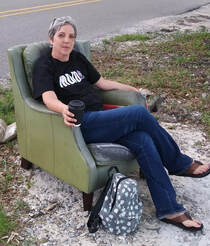 Beth Gordon is a poet, mother and grandmother currently living in Asheville, North Carolina. Her poems have been published in numerous journals and nominated for Best of the Net, Pushcart and the Orison Anthology. She is the author of the chapbook, Morning Walk with Dead Possum, Breakfast and Parallel Universe, published by Animal Heart Press. She is also Poetry Editor of Gone Lawn. 10/31/2019 Poetry by Mairi Murphy hnt6581 CC
Twenty years and twenty days since you went, slept away beside him in your bed (didn’t want it any other way, no fuss, no public rosary said); now it’s his turn, lonely in a hospital bed without you he coughs and waits, coughs and waits: come back for him. You’ll be annoyed he did so well without you, so don’t hold it against him: we helped him cope you know you couldn’t have managed without him even if we’d brought the world - useless to you without him. Heaven’s time is not ours, a score of years - nothing to eternity, eternal waiting for him, so come, his cough, his temperature, his discomfort your gateway, already the room is filling, rattle-ready: come I tell him that I love him, touch hurts now. Cool his skin, tell him not to struggle anymore, moisten lollipop- sponged mouth damping his occasional words intermittent as the rain outside, 2am-quiet We wait: our guardian angels talk low, interrupt, confer only what is sensed, unspoken; between one open world, another closing something final, yet infinite, this vast domain waiting, waiting for completion to arrive, a love as big as God, for you, a love as big as life. Solemnity of Saints Peter and Paul So we sit. I don’t know what to do. It seems silly doing nothing, but nothing won’t change anything. Yet we’re looking for a change. Anything. Anything to call the family. We’ve all been here. En masse. Dribs and drabs. Singly. All together. Emily with earphones under a table. All talking. All quiet. Amy in doctor mode, in grandchild mode, checking drips, removing drips, wanting him peaceful. Quieting gurgling sounds. He coughs and we don’t know what to do. Awake, rheumy eyes look at me as I say ‘I love you.’ Asleep, I say, ‘Let go, where are you going but heaven?’ Birds screech chases outside the window. Aeroplanes zoom to another place, leave longing behind. Constant ‘Help me’ from another room. I don’t know what to do. Say the rosary. Implore. Wait as heaven gurgles-rattles, warm-cold. Jesus on the other side please answer: don’t let a privilege become a chore. Comfortable, yes-no-yes Maybe. Let him sleep. If he grimaces he needs more pain relief. He is filling up now, coughing so. Laboured death becomes birth. Birth becomes laboured. Eternity is born in death. Right-so. Right so. Tony comes in and offers breakfast: porridge, orange juice. They change his position – tell us what’s normal – this is normal. What passes for normal. The young can’t be normal in the only way they know, by acting normal. Which in the circumstances appears abnormal, but you know. Alright so. Ok, so. I feel useless, detached. To be close to horrific. Detach with love. Type because I need to busy my hands. My husband’s hands enclose his. We wait. Watch many types of breathing. There should only be one type of breathing – the no-noticeable, non-negotiable type. Listen for footsteps at the door. In and out all day. Turn, suction, position. Dr. Malcolm asks us if we want him to do anything. Francis comes to say goodbye: Granda wakes to say I love you. We take our son for the long, lonely bus journey to Birmingham to work. Lunch in Concert Hall Café, full of graduates from Caledonian Uni. O Happy Day. Head back, time passes, I fall asleep with my head on the bed rails, go home to sleep. Dad, anointed, smells of myrrh. His breathing is smoother. Sinead cries going away. We sit reminisce. The sun sinks, full frontal glow. Light skims the hills, not raging yet but soon, soon. Propped up, freshly shaved, he hears us. The room is darker now, the light outside illuminates the underside of the clouds, mustard grey. We wait, breathing shallow. Twenty to ten. We sit and wait. Requiescat in Pace between light and dark between the turning of the year and its vanishing, I think of you November brings an empty threshold a lonely place at my table Christmas dinner without you a spiritual sadness, this sad translation soft and quiet, soft and quiet here: a pilgrimage to mark the loss of something beautiful a heart with no key, how can the very heart of you not beat, how can you not beat? dark wisdom, dark wisdom here a mother without a father, not ready to be grown up, not ready to take over I’m lost without you, lost between light and dark between the turning of the year and its vanishing, I think of you Mairi Murphy graduated last autumn from Glasgow University with a Masters in Creative Writing. Whilst there she was awarded the 2016 Alistair Buchan Prize for poetry for which two of her poems were also shortlisted. Recently her poems have been published in ‘Shetland Create’, ‘From Glasgow to Saturn’ and ‘Crooked Holster (an anthology of crime). She is the editor of ‘Glasgow Women Poets’ published by Four-em Press in 2016, of which she is the co-founder. Justin Kern CC Classifieds: Used Car, High Mileage When the stickers had been scraped off and everything dull was shiny again it almost looked like it wasn’t ours. But the persistent drip of melted crayon, dark blue against the grey, resistant to all scrubbing, spoke of the years it had cradled my babies taken all of their sticky-fingered abuse tucked their candy wrappers in its back pocket and picked up the muddy shoes they kicked off. I took for granted the gift of its body, stalwart between my little family and the monsoons, uncomplaining in the thankless role of work horse. It wasn’t until after the divorce that I actually named him, when, years ago, we bonded over tears in the parking lot after the fracturing of my family was official. He made an unspoken promise to carry me when I could not walk, protect me when I was weak, and be my partner in moving forward. He didn’t falter until my children were no longer babies and still he would not let go of the melted crayon. Not even after I handed him over to some oily stranger at a gas station parking lot in exchange for a wad of hundred dollar bills as if all he ever was was a car. 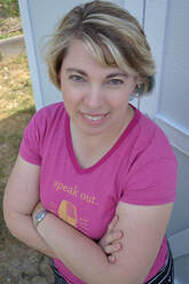 Marianne Hales Harding is a poet, essayist, and playwright living in a small town in the western United States. She has been published in Dialogue, Segullah, Helicon West, and Rocky Mountain Runners. Her work has been produced across the U.S. and her award-winning play Hold Me was adapted for film. She is honored to influence young writers at three universities and co-founded Provo Poetry, a non-profit dedicated to bringing poetry into the community at large. |
AuthorWrite something about yourself. No need to be fancy, just an overview. Archives
April 2024
Categories |
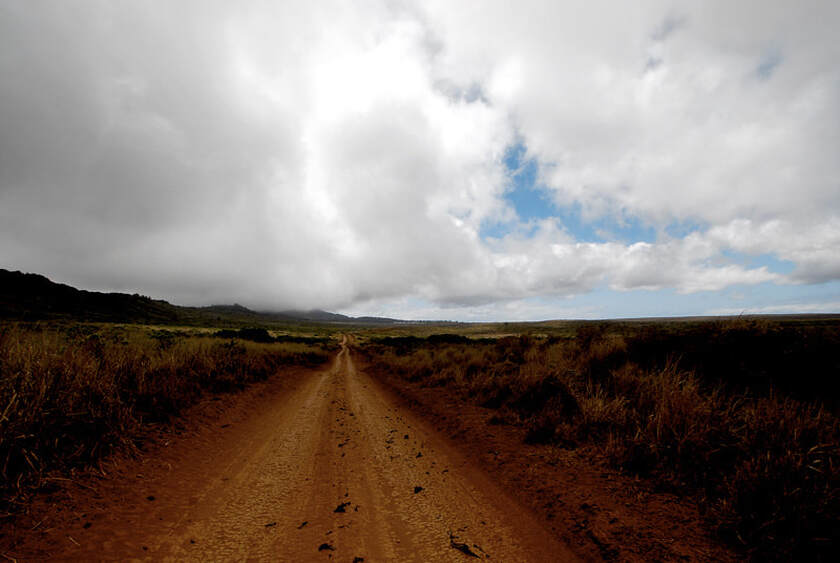

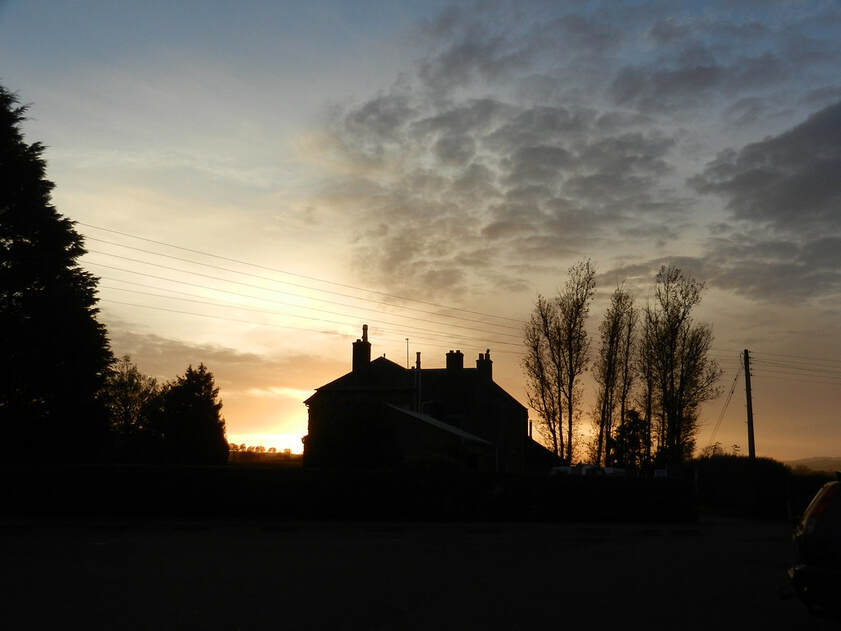
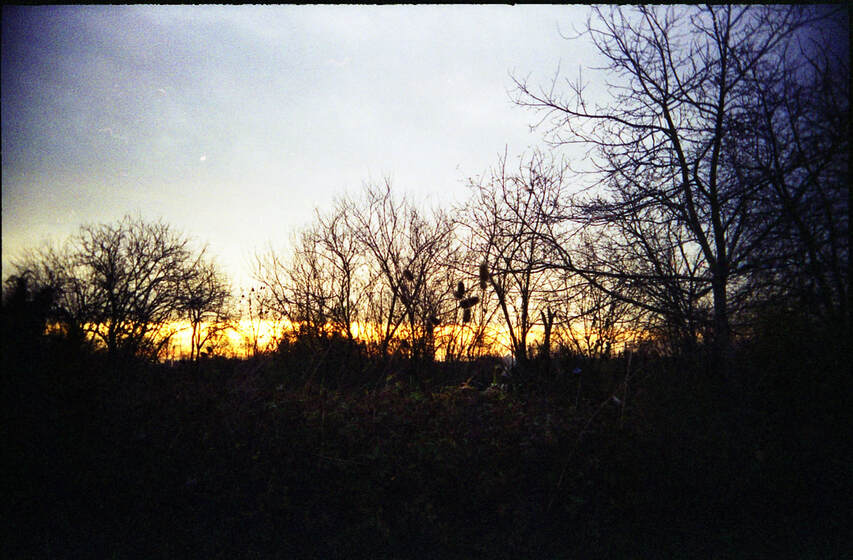
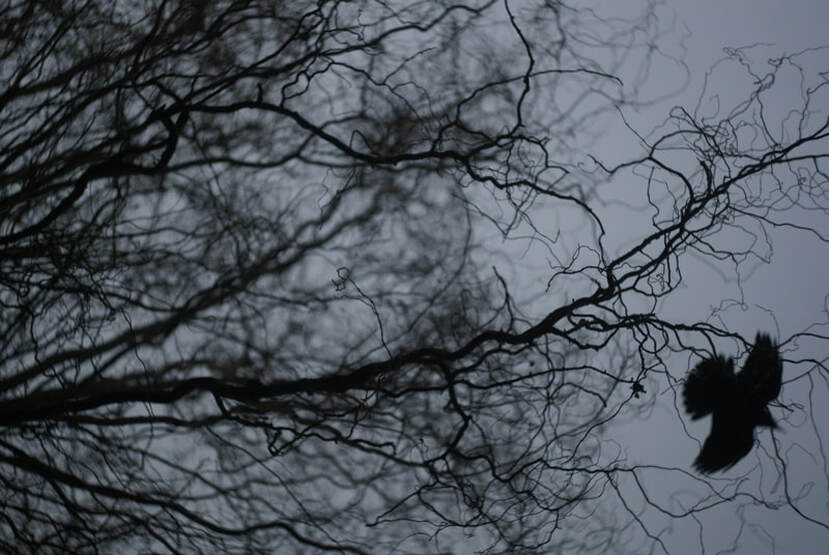
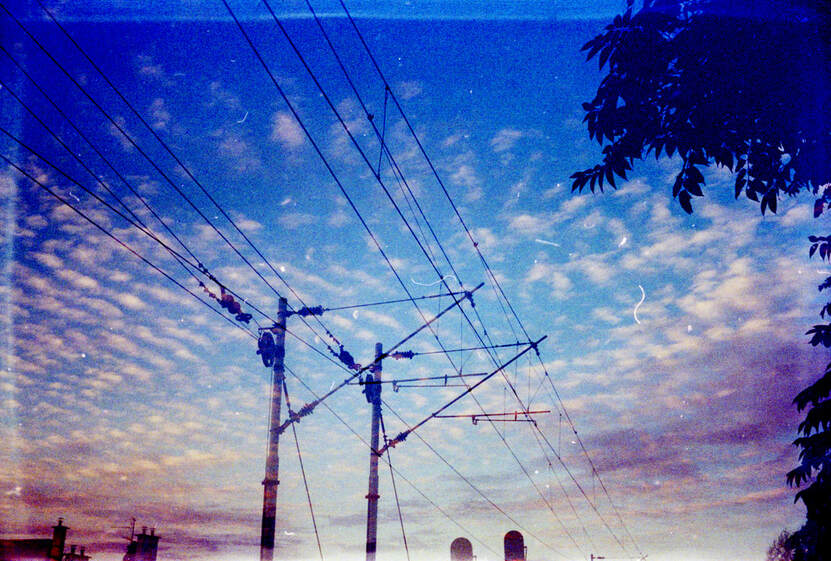

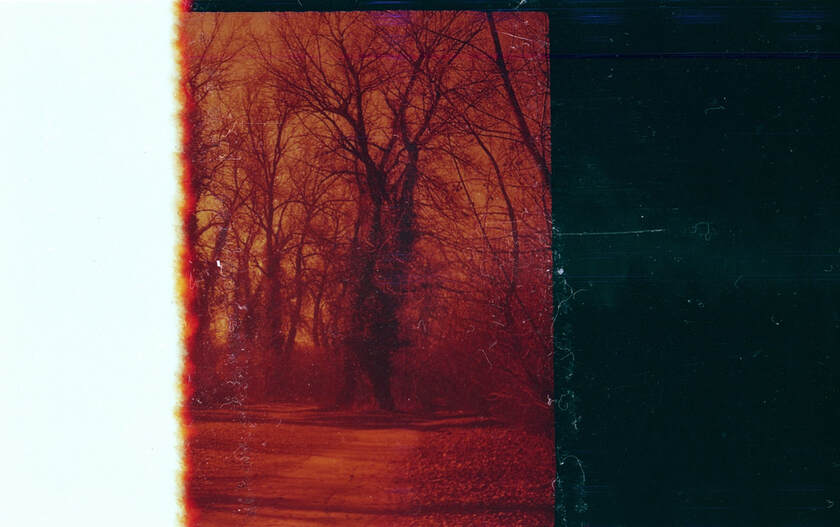

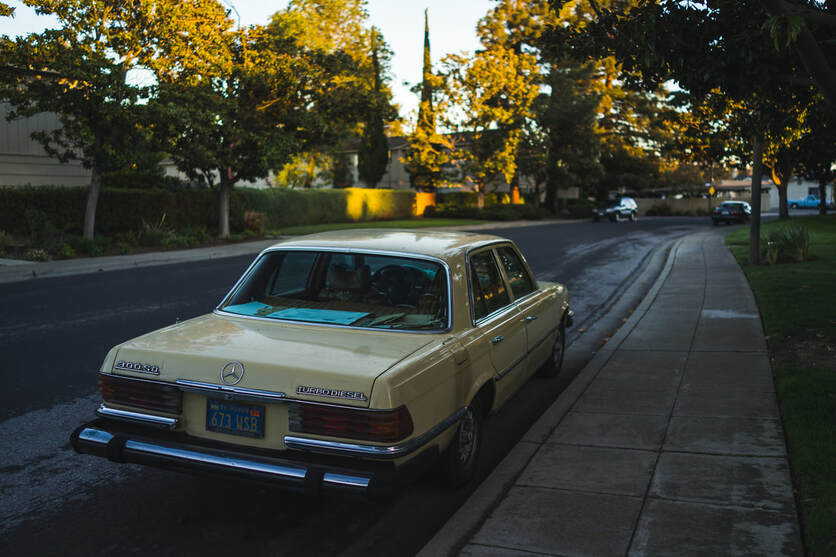
 RSS Feed
RSS Feed
